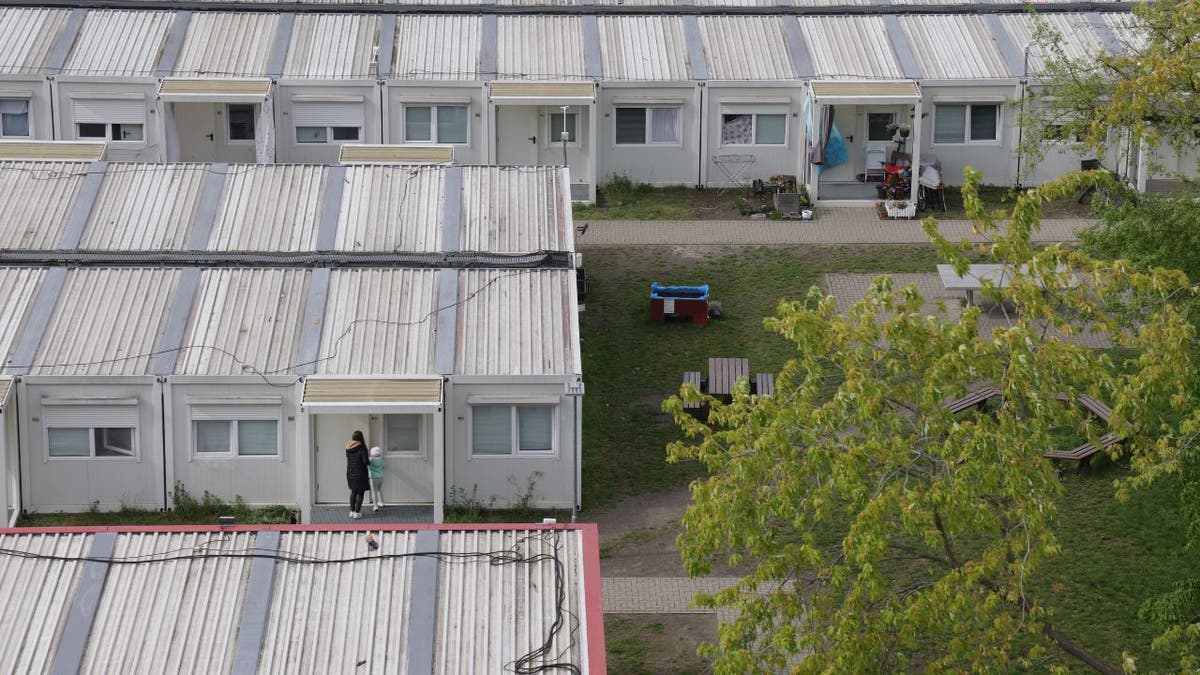The reputation of the U.S. globally has taken a hit over the last year and the majority of citizens believe election integrity threatens the country’s democracy, while immigration is now one of the top concerns among Europeans, according to a global study published on Wednesday.
The drop in positive attitudes towards the U.S. is particularly stark in the Muslim-majority countries surveyed, including Indonesia, Malaysia, Turkey, Morocco, Egypt, and Algeria, as well as in European countries such as Switzerland, Ireland, Ukraine and Germany.
Still, the U.S. remains positively viewed globally, although Russia and China are now seen as positively as the U.S. in most Middle East and North African countries surveyed, according to the study.
BIDEN PLAN TO EXTEND OBAMACARE ELIGIBILITY TO ILLEGAL IMMIGRANTS GETS PUSHBACK IN CONGRESS: ‘MADNESS’
Biden speaks at the Pieper-Hillside Boys and Girls Club in Milwaukee, Wisconsin, on March 13, 2024. The reputation of the U.S. has suffered globally between the Spring of 2023 and the Spring of 2024. ( Sara Stathas/Bloomberg via Getty Images)
In Europe, countries have witnessed a sharp increase in the share of people who say that “reducing immigration” should be a top government priority as concerns about climate change fall, according to a global study published on Wednesday. About 5.1 million immigrants entered the EU from non-EU countries in 2022, an increase of around 117%, or 2.7 million, compared to 2021, European data shows.
Germany was in the lead with 44% when it came to people wanting their government to focus on reducing immigration, followed by Ireland and France.
The study, called the Democracy Perception Index (DPI) is one of the world’s largest annual studies on how people perceive the state of democracy in their respective countries and consisted of 63,000 interviews from people across 53 countries. It was conducted by the Denmark-based think tank Alliance of Democracies Foundation and the research group Latana. It did not provide a reason for the U.S. reputation decline.
The DPI found that faith in democracy has remained high across the globe over the past six years with 85% of those polled saying that it’s important to have democracy in their country.
However, governments don’t always live up to people’s expectations. While 58% of respondents were satisfied with the state of democracy in their country, the remainder were not.
In the U.S., 60% of respondents said that unfair elections and/or election fraud threatens the country’s democracy, while about 77% said that corruption is a threat to democracy.
LESS THAN 1 IN 4 AMERICANS HAVE FAVORABLE OPINION OF FEDERAL GOVERNMENT: POLL
A container settlement that provides housing for refugees stands in Kreuzberg district on April 16, 2024 in Berlin, Germany. Immigration is now a major concern among Germans. ( Sean Gallup/Getty Images)
The study said dissatisfaction was not limited to non-democratic countries. It was also prevalent in the U.S., Europe and in other places with a long democratic tradition.
In Europe, about a third of Hungarians believe they live in a democracy.
About half of the people around the world, in both democratic and non-democratic countries, feel that their government is acting only in the interest of a small group of people. Over the past four years, this perception has remained highest in Latin America, lowest in Asia and has steadily increased in Europe since 2020 – particularly in Germany, the study shows.
Israel, Ukraine and Russia have all experienced a “rally around the flag” effect, with the public perception that the government is acting in the interest of the majority of the people increasing rapidly after the start of their respective conflicts. In Ukraine, however, this perception declined sharply after it peaked in 2022.
Anders Fogh Rasmussen, the chair of the Alliance of Democracies Foundation and former Danish Prime Minister, says that these figures are an eye-opener and the trend shows there is a risk of losing the Global South to the autocracies.
The DPI found that faith in democracy has remained high across the globe over the past six years with 85% of those polled saying that it’s important to have democracy in their country. (PAUL J. RICHARDS/AFP via Getty Images)
“Around the world people want to live under democracy but these figures are a wake-up call for all democratic governments,” Rasmussen said.
“Defending democracy means advancing freedom around the world, but it also means listening to voters’ concerns at home… We are witnessing an axis of autocracies forming from China to Russia to Iran. We must act now to make freedom more attractive than dictatorship and unite through an alliance of democracies to push back against the emboldened autocrats.
War and violent conflict is increasingly seen as the most important global challenge, followed by poverty and hunger, and climate change. The last year has seen a global rise in the share of people who say that migration and terrorism are among the world’s largest challenges, particularly among Europeans.
At the national level, most people want their governments to focus more on poverty reduction, corruption and economic growth.
However, there are strong regional differences in priorities: Europeans and Americans are much more likely to want their government to prioritize improving healthcare, fighting climate change and reducing immigration than countries in Asia and Latin America, where fighting corruption and promoting growth are seen as more important.
Globally, 33% of those surveyed believe climate change is one of the world’s three main challenges, but only 14% say fighting it should be among the top three priorities for their government.
Immigration is likely to play a major role in next month’s European elections where nationalist parties are expected to make significant gains.
The Associated Press contributed to this report.
Michael Dorgan is a writer for Fox News Digital and Fox Business.
You can send tips to michael.dorgan@fox.com and follow him on Twitter @M_Dorgan.

/cloudfront-us-east-2.images.arcpublishing.com/reuters/5SZI4M7REBKBZDS5AELRYIYE2M.jpg)































